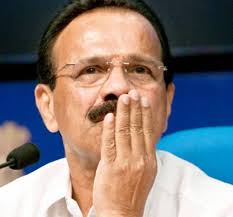Mangaluru, Jul 30: Even as hundreds of Sangh Parivar activist continued to post sadistic comments on social media celebrating the untimely death of Karnataka chief minister Siddaramaiah's elder son Rakesh, a senior BJP leader, who too had lost his son 13 years ago, has expressed deep condolences over the sad demise of 39-year-old budding leader.
 “The grief of having lost a child can be known only by a father who has lost one and I fully understand CM's grief,” said former chief minister DV Sadananda Gowda, who is currently a union minister.
“The grief of having lost a child can be known only by a father who has lost one and I fully understand CM's grief,” said former chief minister DV Sadananda Gowda, who is currently a union minister.
"I can understand his pain, I too have lost my son," said Mr Gowda, recalling the death of his own elder son — Kaushik Gowda, who died following a road accident in Puttur in 2003. Mr Gowda was a member of parliament representing Dakshina Kannada then.
Mr Gowda also took to twitter to express his shock: “I am shocked at the sad demise of Sri Rakesh Son of @CMofKarnataka Sri Siddaramaiaha ji .. No words to explain my feelings at this time,” he tweeted.
Speaking to media persons in Mangaluru, Mr Gowda said that at this situation Mr Siddaramiah not only manage the turmoil that is going on within the family, but also discharge his duties towards society as the head of the state.
Now the only option is that CM should see his departed son in the youth of the state and work towards their welfare, he added.
Also Read:
Karnataka CM Siddaramaiah's son Rakesh, 39, dies in Belgium hospital









Comments
Baap ka pyaar
Add new comment